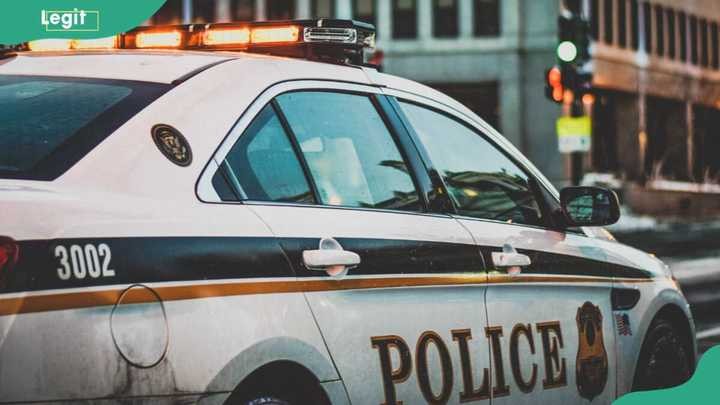The police force, a cornerstone of modern society, has its roots tracing back to the early 19th century with the establishment of London’s Metropolitan Police in 1829. Over time, various slang terms have emerged to refer to law enforcement officers, and one particularly intriguing term is “12.” So, why are police called 12? This slang is particularly prevalent in certain regions, especially the Southern United States and Atlanta, Georgia, gaining traction through popular culture and hip-hop music. Let’s delve into the story behind this numerical nickname for the men and women in blue.
Decoding “12”: What Does It Mean?
“12” is a slang term designating police officers, most notably used in Atlanta, Georgia, and spreading through broader American vernacular. The connotation of “12” can vary depending on context and speaker intent. It can be used derisively or as an insult in some instances, while in others, it might be employed neutrally, simply as an identifier, or even playfully among certain groups. Understanding the nuance behind its usage is key to grasping its cultural significance.
Tracing the Roots: Theories Behind “12”
While the definitive origin of “12” as police slang remains somewhat shrouded in mystery, several compelling theories attempt to explain its emergence.
The 10-Code Connection
One prominent theory links “12” to the police 10-codes, specifically the code “10-12.” In law enforcement radio communication, “10-12” traditionally means “stand by” or “wait.” Dating back to the 1960s and 70s, this code was a common part of police radio lingo. It’s suggested that the shorthand “12” evolved from this code as a quick way to refer to the police presence, especially as a warning. People might use “12” to signal to others that law enforcement was nearby, advising caution or discretion.
The ACAB/1312 Theory
Another, more controversial, theory connects “12” to the acronym ACAB, which stands for “All Cops Are Bastards.” This phrase, often used as a protest slogan, has a numerical equivalent: 1312. Here, 1 represents the first letter of the alphabet (A), 3 represents the third letter (C), and 2 represents the second letter (B). It’s proposed that “1312” was further shortened to simply “12” as a more concise, coded way to refer to the sentiment behind ACAB.
The Adam-12 TV Show Influence
A more pop-culture oriented theory points to the classic police television show Adam-12. This popular series, which aired from 1968 to 1975, followed the daily lives of two Los Angeles police officers patrolling in their patrol unit, designated “1-Adam-12.” The show was widely watched and potentially ingrained the “12” from “Adam-12” into the public consciousness as a synonym for police. Similar to how “5-0” (from Hawaii Five-O) became another popular slang term for police, “12” might have gained traction through Adam-12‘s cultural impact.
Why “12” Sticks: Reasons for its Popularity
The slang term “12” has endured and spread for several reasons:
- Alerting Others: Primarily, “12” serves as a discreet way to alert people to the presence of law enforcement in an area. This can act as a heads-up, allowing individuals to avoid police interaction if they wish.
- Pop Culture Reinforcement: Popular culture, particularly hip-hop music and movies, has significantly amplified the use of “12.” Its inclusion in songs, films, and other media has normalized and popularized the term, making it a widely recognized moniker for the police. For example, the 1995 comedy film Friday features Ice Cube using “12” as a warning about approaching police.
“12” in Pop Culture
The term “12” has permeated various aspects of pop culture, solidifying its place in contemporary slang. It’s frequently heard in hip-hop and rap music, often used to express distrust of or caution regarding law enforcement. Films and television shows that depict urban environments or police narratives sometimes incorporate “12” to add authenticity to dialogue or character interactions. This constant exposure in media contributes to the term’s continued relevance and widespread understanding.
FAQs About “12” and Police Terminology
1. Where does the term “police” originate?
The word “police” comes from the Greek term “politeia,” meaning “citizenship” or “government,” evolving through French to its modern English form.
2. What was the first professional police force?
The Metropolitan Police, established in London in 1829, is recognized as the first modern professional police force.
3. Why is “12” used as slang for police?
“12” is used to discreetly warn people about police presence, potentially stemming from police radio codes, the ACAB acronym, or the TV show Adam-12.
4. When did “12” start being used for police?
The term gained traction in the late 1960s and has become increasingly popular since, especially through pop culture influence.
5. Is calling the police “12” disrespectful?
While the term can be used disrespectfully depending on context and tone, it is not inherently derogatory. Its impact largely depends on the intent and delivery of the speaker.
Conclusion: The Enduring Slang of “12”
Why are police called 12? The answer, while not definitively pinpointed to a single origin, likely involves a combination of factors, from police radio codes and protest slogans to popular television. Regardless of its exact etymology, “12” functions as a widely understood slang term for police, particularly in American English. It serves as both a practical warning and a cultural marker, reflecting evolving language and perceptions surrounding law enforcement.
